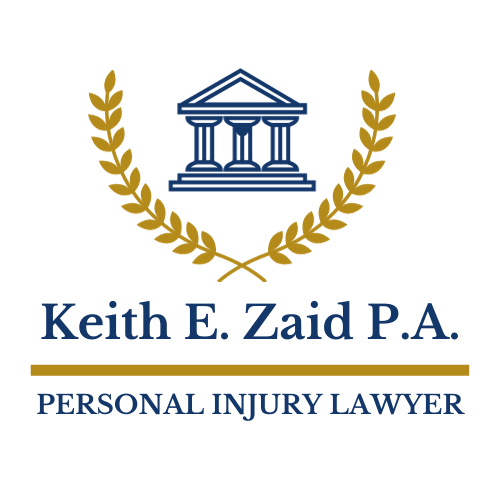If you love participating in sports or enjoy taking up adventurous activities, you have most likely signed a liability waiver. If you have taken up membership at a gym, gone ziplining, surfing, you must have signed some “papers” before starting. This “paper” or document is written by the organization arranging the activity and is formally known as a liability waiver. Many organizations also make you sign an electronic liability waiver. For instance, the terms and conditions, you agreed to when signing up for Uber are also a form of liability waiver.
A liability waiver protects the organization or service provider from legal liability. This means that it can be difficult for the customer or participant to receive damages if they sustain any injury that is caused by the organization’s negligence. Different states have different laws regarding the enforceability of liability waivers in personal injury cases. For example, under the New Jersey law, liability waivers in personal injury cases can be enforced depending on the situation.
Similarly, employers also use liability waivers. This protects them from work-place accidents, illnesses, or injuries their employees might sustain on the worksite. If an employee has signed a liability waiver, it can be difficult for them to file for workers’ compensation claims.
This article contains everything you need to know about liability waivers. So, if you have signed a liability waiver but want to file for personal injury or workers’ compensation claims, continue reading.
How Does A Liability Waiver Work?
When you sign an organization’s liability waiver, you agree that you will not hold the organization accountable for any injury that you may suffer due to its negligence. There are basically two types of negligence that can result in personal injury. These are ordinary negligence and gross negligence.

- Ordinary Negligence – Ordinary negligence occurs when an activity becomes unsafe even though the organization is trying to maintain all safety procedures. Ordinary negligence can be unintentional. Some examples include broken equipment, wrong advice, etc.
- Gross Negligence – Gross negligence means that the service provider has knowingly disregarded their participant’s or customer’s safety. In gross negligence, an organization might be aware of certain risks but doesn’t take any action on it.
Liability Waivers of Ridesharing
As ride-hailing services get more and more popular, several questions have surfaced regarding the liability of Uber and Lyft in case of injury and accident. If you are using these services, then you must know your rights before you agree to the terms and conditions.
Both Uber and Lyft have clauses in their terms and conditions that free them of responsibility in case of an injury or accident. For instance, a clause in the Lyft Terms and Conditions states that it is not responsible for any type of damage resulting from negligence.
Things to Know Before You Sign A Liability Waiver
Before you sign the next liability waiver, there are some essential things that you need to know. Firstly, you need to understand why an entity would ask you to sign a liability waiver. The two primary reasons why an entity wants to sign a liability waiver include:
- To maintain a written record of the fact that you have been briefed about the potential hazards and risks.
- To release them of any responsibility for injuries that result due you to negligence.
Secondly, you should thoroughly read the terms mentioned on the liability waiver before you sign. Even though this might seem like common sense, the majority of people simply sign the document without reading it carefully.
Thirdly, you need to ensure if the waiver meets the following criteria:
- Clear Language – Does the waiver clearly state that you are absolving the organization or entity of all liability including negligence?
- Format – Is the protection from liability written in a small font or is it easily noticeable?
- Precise List – Is the waiver specifying any injury or risk?
- Legality – Are the clauses of the waive in line with the state’s law and public policy?
All these factors play an important role in determining the enforceability of the liability waiver. Therefore, you must ensure that you are paying attention to them.

Liability Waivers in Personal Injury Cases
Gym owners and recreational service providers often make their customers and participants sign a liability waiver. This helps to protect them against liability from any personal injury cases such as sky-diving accidents, surfing injuries, gym accidents, etc.
Are Liability Waivers in Personal Injury Cases Enforceable in New Jersey?
According to the New Jersey law, liability waivers are regarded to be “contracts of adhesion.” In simple terms, a contract of adhesion is prepared by one party (usually the business owner) and signed by another party (the participant or customer). Contracts of adhesion are presented to the signing part on a “take-it-or-leave-it” basis. This means that the signing party cannot change or negotiate the clauses of the waiver.
Even though contracts of adhesion are viewed with a skeptical eye, the New Jersey law will validate them unless they violate public policy or are unconscionable. In many cases, it is difficult to rule if a contract is unconscionable. Some factors that courts look to determine the unconscionability of a contract include
- The contract’s subject matter
- The bargaining power of the people involved
- The amount of financial or economic compensation to be given to the signing party
- The public interests affected by the contract.
To determine if the liability waiver violates public policy, the court will balance the public’s interests in the contract’s subject matter against the individual bargaining powers of the parties. For instance, gyms require their members to sign liability waivers so that they can make use of the facilities. The gym’s public interest is to encourage and facilitate exercise and provide relevant equipment. In return for fulfilling this public interest, gym owners can limit their liability to members who suffer an injury due to the gym staff’s gross negligence.
However, there are certain limitations to this case. Courts tend to rule against entities that transfer the blame of injury to an innocent party. Moreover, courts also disfavor businesses that eliminate the duty of care that they owe to their customers. New Jersey courts also deem liability waivers as unconscionable or going against public policy if they absolve the business of all kinds of responsibility. Particularly, courts have rejected liability waivers if they found that the business owner is responsible for gross negligence.
If you or your loved one has suffered an injury due to someone else’s negligence, you should consult with a lawyer. Our team of experienced personal injury lawyers will investigate your case and help you file a claim.
Real-Life Example When Liability Waiver Was Not Enforced
In 2017, plaintiff Kyung Pak sustained severe injuries while participating in a fitness session at NJ Fitness Factory. Pak had signed a liability waiver that absolved the fitness center from all liability claims. The challenge in Pak v. NJ Fitness Factory was to determine if the waiver was enforceable or not.
Kyung Pak had gotten injured during a fitness session because she stepped over a treadmill that was running. The NJ Fitness Factory typically kept running their treadmills even after use and had no warning to inform participants that it was running. A fitness trainer at the club instructed Pak to step onto the treadmill. Since she was not aware of the running treadmill, she was thrown off and severely fractured her neck.
The fitness club claimed that because Pak had signed a liability waiver, it was not responsible for her injury and requested the Court to dismiss the lawsuit. However, the Appellate Court ruled the waiver as unenforceable. There were three main reasons for this decision. The first reason was that the waiver had negative implications for the public interest. Secondly, the fitness center completely eliminated the duty of care that is owed to its customers. Lastly, the waiver was deemed to be unconscionable because it tried to protect the fitness center from all kinds of liability.
Can Your Child Sign A Liability Waiver?
Many children participate in sports and physical activities to spend time with friends, stay active, and learn new skills. However, these activities are often coupled with an element of risk. Recreational places such as gyms are aware of the potential hazards and require parents to sign a liability waiver on their child’s behalf. As a parent, you need to understand the clauses and enforceability of such agreements before signing them.
The law in New Jersey says that liability waivers by the parents on behalf of their child are not enforceable or valid. This simply means that you cannot revoke your child’s right to seek compensation for an injury suffered due to someone else’s negligence. However, you should still read these forms carefully before signing because some clauses can be enforceable even if others aren’t.
If you feel uncertain about signing a waiver for your child, you should consult our team of experienced attorneys.

Liability Waivers and Workers’ Compensation Claims
Workers’ compensation is an insurance program that insures employees for job-related injuries and illnesses. In 1911, the State of New Jersey passed the New Jersey Workers’ Compensation Act. This means that you can file a workers’ compensation claim in New Jersey if you sustained an injury or illness as a result of working on the job. In case, you do get a work-related illness or injury, you are entitled to benefits including medical treatment, lost wages, ongoing care costs, temporary or permanent disability benefits.
Many employers ask their employees to sign a liability waiver so that they do not have to cover for injuries. In this case, employers can use a waiver that contains a series of clauses that help to mitigate potential risks of liability. This kind of contract can include a waiver clause along with additional clauses such as identification, agreements not to sue, etc. If these contracts are enforced, they would successfully absolve the employers for risks mentioned.
Employee Waivers
Liability waivers between employees and employers are generally disfavored. This is because such agreements comprise unequal bargaining power between the two parties. In several U.S. states, such agreements do not apply to cases of gross or ordinary negligence. This means that employees cannot relinquish these liabilities.
Employee waivers are further restricted due to the statutes of workers’ compensation. This requires employers to reimburse employees who have sustained an injury in the scope or course of their employment. Employees typically cannot waive off workers’ compensation claims for job-related injuries or illnesses.
COVID-19 Liability Waivers
The COVID-19 pandemic forced many businesses to close down temporarily. As the curve begins to flatten and businesses reopen, many employees are returning back to work. Employers are now contemplating how to deal with the potential risk of employees contracting the virus in the workplace. These issues have led employers into developing a COVID-19 liability waiver.
If your employer is making you sign a COVID-19 waiver, you cannot hold them responsible if you contract the virus from your workplace. This means that you will not be able to file for workers’ compensation claims and receive benefits if you contract the disease. However, this is a tricky situation as it is difficult to prove whether you contracted the virus from your workplace.
Are Employer Liability Waivers Enforceable in New Jersey?
In many U.S. states including New Jersey, many employers and third parties try to protect themselves by having current and prospective employees sign an employee waiver. However, such contracts are not enforceable in the State of New Jersey. Recently, the Supreme Court in New Jersey passed a ruling that such contracts violate public policy and are therefore rendered invalid and unenforceable.
The statute 34:15-39 of New Jersey’s Workers’ Compensation Law makes it clear that employers cannot ask an injured employee to waive their rights to workers’ compensation.

Final Words
We hope that you now have a clear understanding of liability waivers and how they work in the State of New Jersey!
If you or your loved one has suffered an injury due to someone else’s negligence, you should immediately contact a lawyer. Our team of experienced personal injury and workers’ compensation lawyers will help you receive the benefits you are entitled to.


